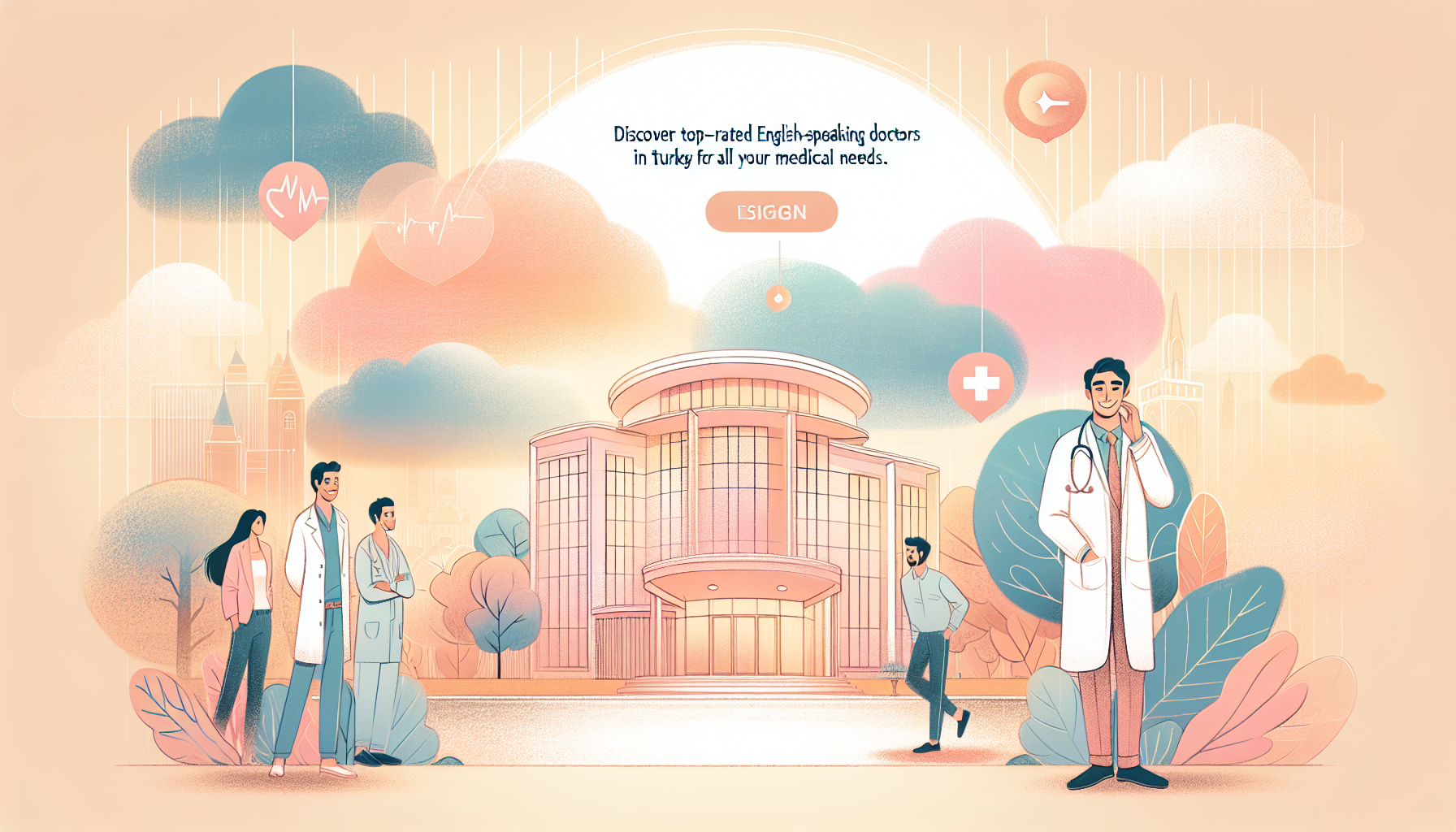Finding English-Speaking Doctors in Turkey

Living abroad offers incredible opportunities but also brings unique challenges, especially when it comes to healthcare. For expats in Turkey, finding an English-speaking doctor can be one of the trickiest aspects of settling in. With language barriers and unfamiliar health systems, ensuring access to clear communication with medical professionals is critical. Fortunately, today’s expats have more resources than ever to navigate these concerns and maintain their well-being with confidence.
1. Why English-Speaking Doctors Matter for Expats
Clear communication is essential in healthcare. When living in a new country, misunderstandings can lead to stress, incorrect treatments, or delays in important procedures. Having an English-speaking doctor simplifies:
- Describing symptoms accurately
- Understanding diagnoses and treatment options
- Following medication instructions properly
- Feeling more at ease during consultations
For instance, an expat living in Istanbul shared how a misinterpretation of his allergy symptoms by a non-English-speaking doctor led to prolonged treatment. Once he connected with an English-speaking physician, his recovery was faster and less stressful. Choosing a doctor who speaks your language does not just offer convenience — it safeguards your health and peace of mind.
2. Best Ways to Find English-Speaking Doctors in Turkey
Fortunately, multiple avenues can help expats locate doctors comfortable with English communication. Whether residing in a large city like Ankara or a coastal town, these methods prove effective:
- International Hospitals: Major cities feature hospitals designed for international patients, often employing bilingual staff.
- Embassy Recommendations: Many embassies maintain lists of trusted English-speaking doctors and clinics.
- Online Platforms: Websites like Practo, MedAway, or Expat.com offer directories featuring language options and user reviews.
- Expat Communities: Joining social media groups or local expat forums can provide firsthand recommendations.
- Private Clinics: Boutique and private practices often cater to international clients and maintain multilingual services.
Using a mix of these resources boosts your chances of finding excellent care quickly. For example, one Briton in Izmir successfully found a family doctor through a Facebook group within a day of asking for suggestions.
3. Top Cities in Turkey to Access English-Speaking Healthcare
Some regions in Turkey have a higher concentration of English-speaking medical professionals. If you are yet to decide where to settle or need treatment, knowing these locations can be helpful.
- Istanbul: Home to numerous international hospitals like Acıbadem and American Hospital, offering comprehensive English-language services.
- Ankara: Turkey’s capital hosts many bilingual specialists and public hospitals with English-speaking staff.
- Izmir: With a growing expatriate community, clinics like Kent Hospital provide English-speaking consultations.
- Antalya: Popular among retirees and digital nomads, medical centers here frequently cater to English speakers.
- Bodrum: A favorite for European expats, offering access to private clinics where English is widely spoken.
In more rural or lesser-known areas, expats may need to rely more heavily on embassy lists or community referrals, as English services are less common.
4. What to Expect During a Medical Visit
Visiting a doctor in Turkey typically involves straightforward processes, especially if choosing private healthcare options. Here is what to expect:
- Appointment Booking: Most clinics allow online scheduling by form or WhatsApp, often in English.
- Consultation: After a brief registration, you will meet the doctor who can communicate directly or with limited use of an interpreter if needed.
- Payment: Check beforehand whether your insurance covers the clinic. Otherwise, many operate on a pay-per-visit system, with fees clearly stated.
- Prescription & Follow-up: Prescriptions are provided electronically, and pharmacies often employ English-speaking pharmacists in larger cities.
For example, a Canadian expat saw a dermatologist in Istanbul and was able to complete registration, examination, and pick up medication within two hours, thanks to an English-friendly system. Being prepared by asking questions like “Do you conduct appointments in English?” when booking will ensure a smooth experience.
5. Helpful Phrases and Tools for Emergencies
In an emergency, you may not have time to seek an English speaker. Keeping a few simple tools ready can make a big difference:
- Turkey Emergency Line: Dial 112 for emergencies. Some operators can connect callers to English-speaking assistance.
- Google Translate: Download offline translations for quick communication at hospitals or pharmacies.
- Phrase Cards: Carry a card detailing medical conditions and allergies written in Turkish.
- Medical Insurance Apps: Some policies offer direct hospital navigation or translation support within their mobile applications.
Preparation leads to faster care during urgent situations. A US expat recounted using a translation app to quickly inform paramedics of his asthma during a sports injury. Having easy tools at hand ensures no information goes unnoticed when it matters most.
Finding English-speaking doctors in Turkey no longer needs to feel overwhelming. With a little preparation and knowledge of trusted resources, expats can prioritize their health and fully enjoy their Turkish experience. Whether settling in a bustling city or a tranquil seaside town, quality healthcare is always within reach.
